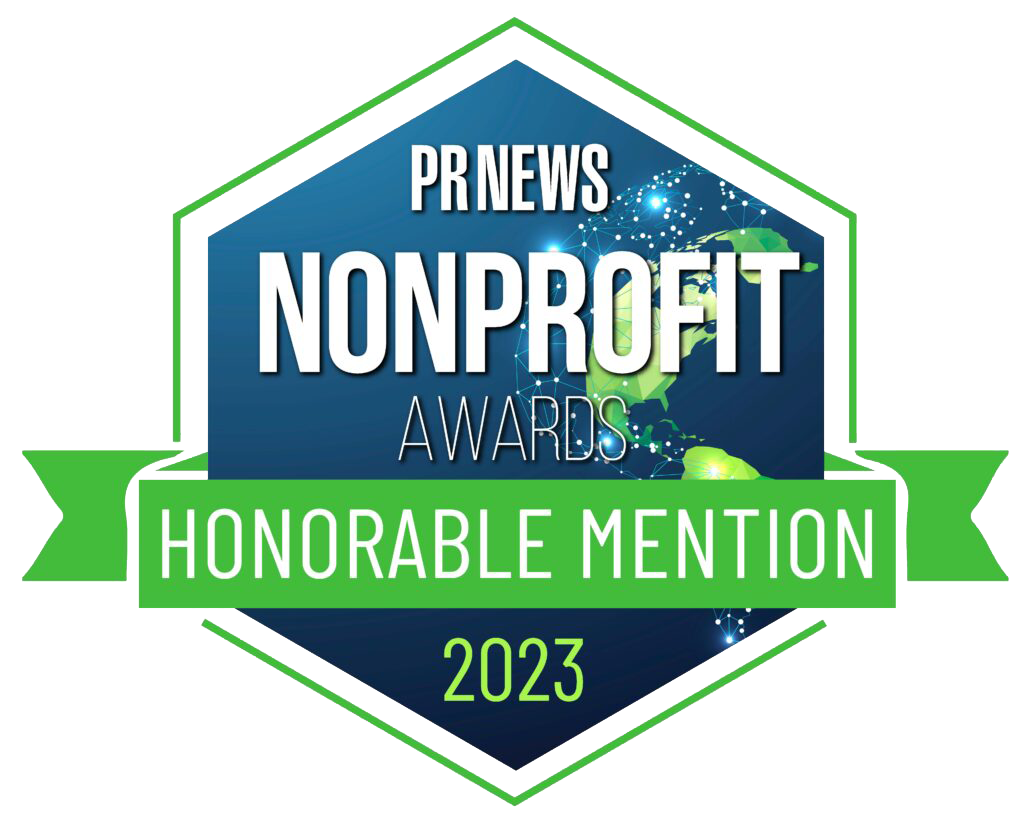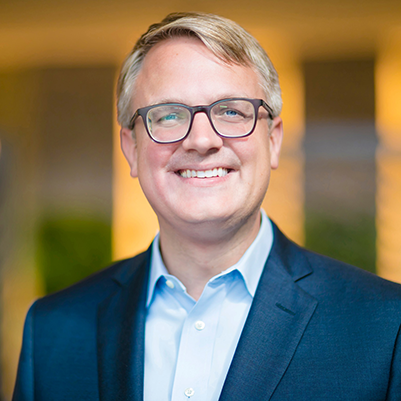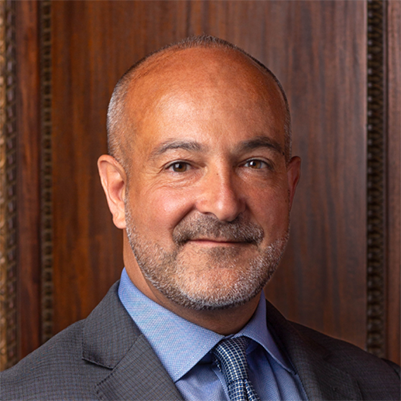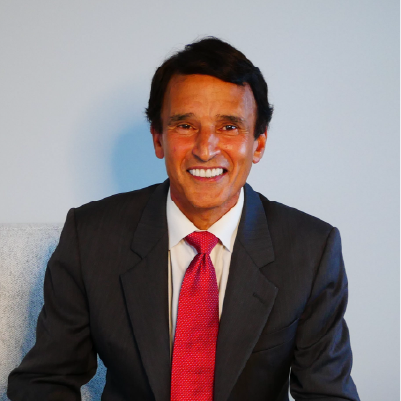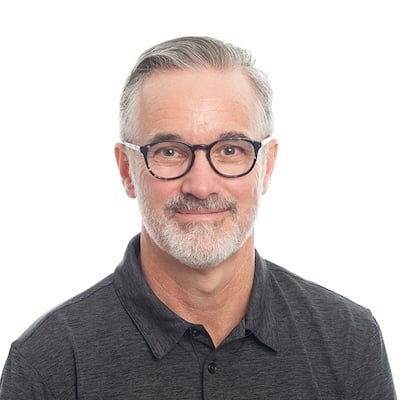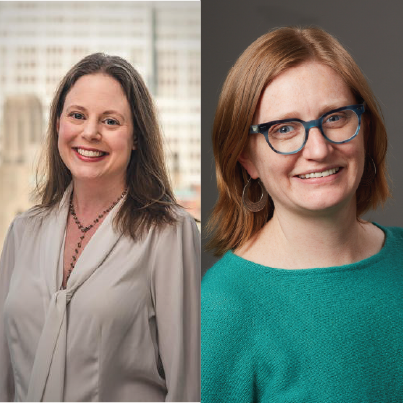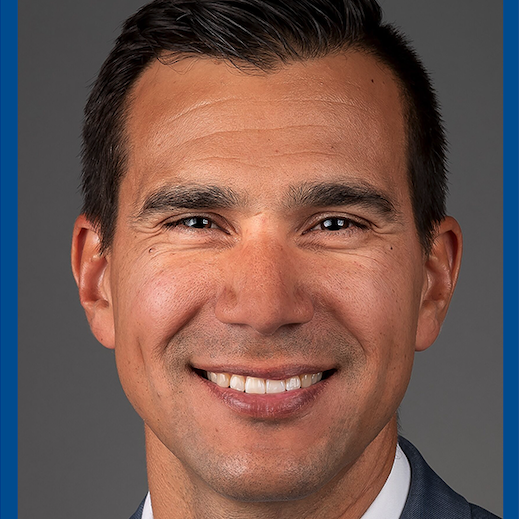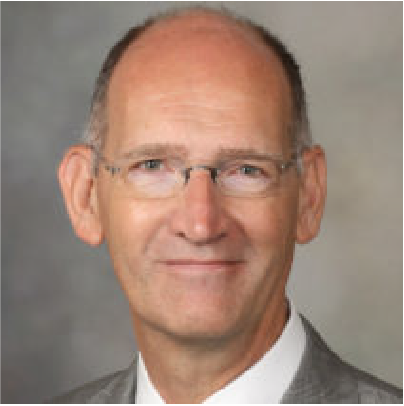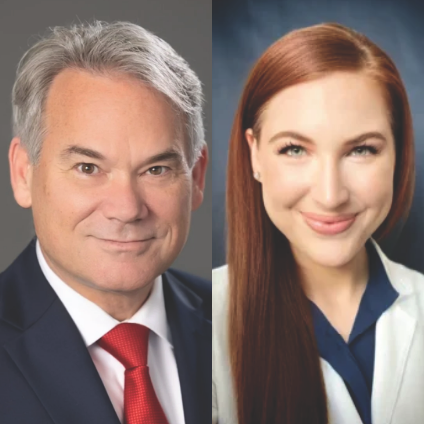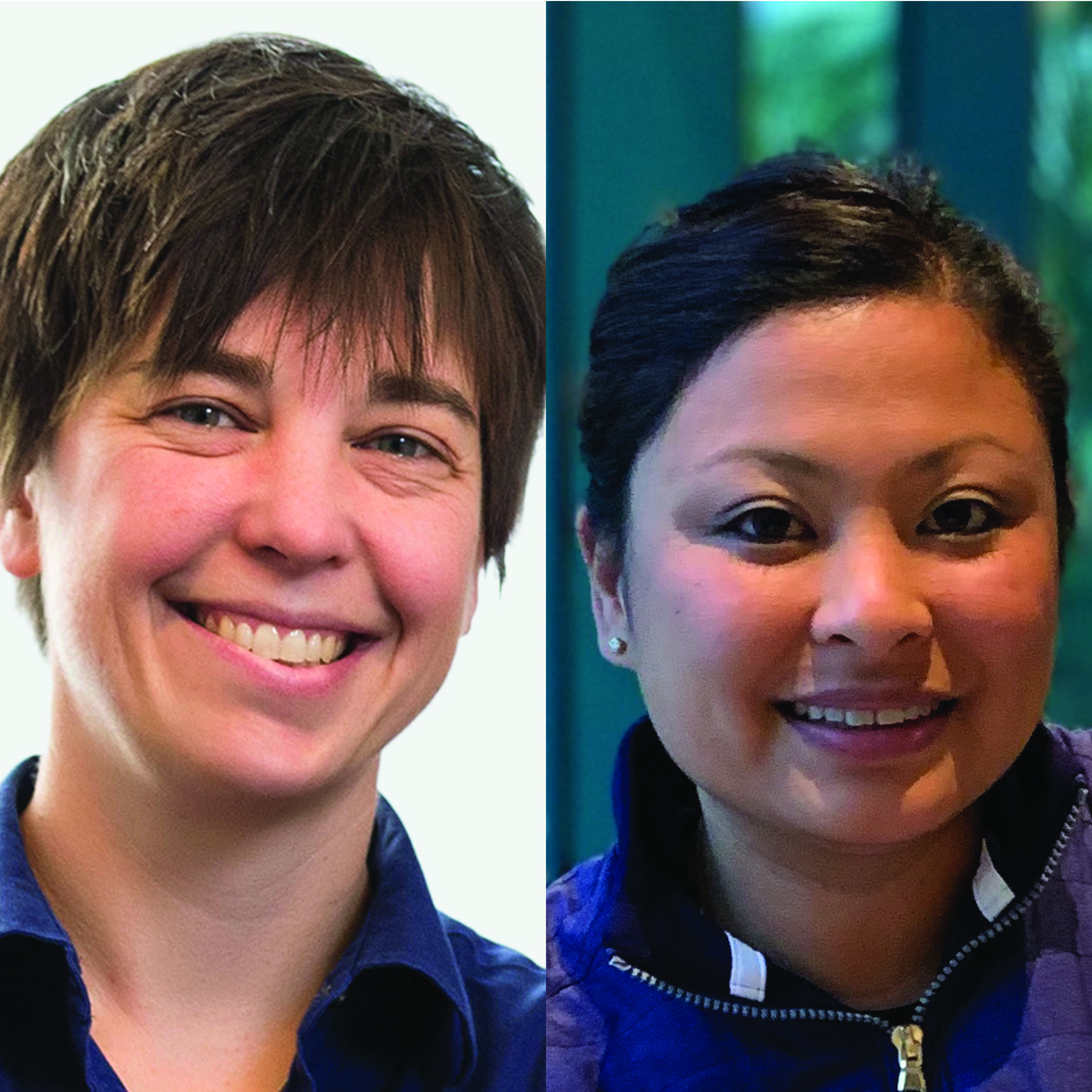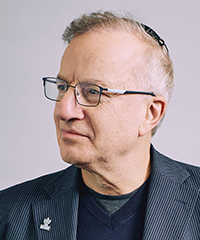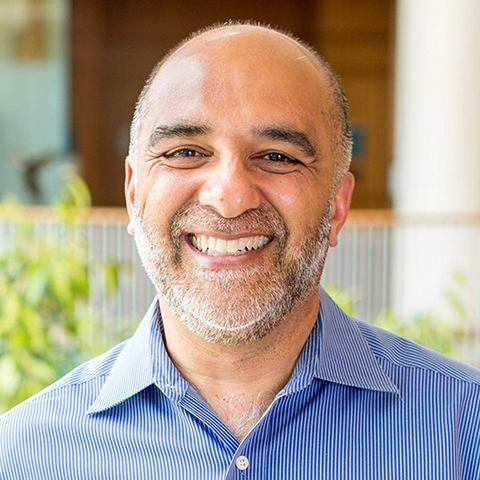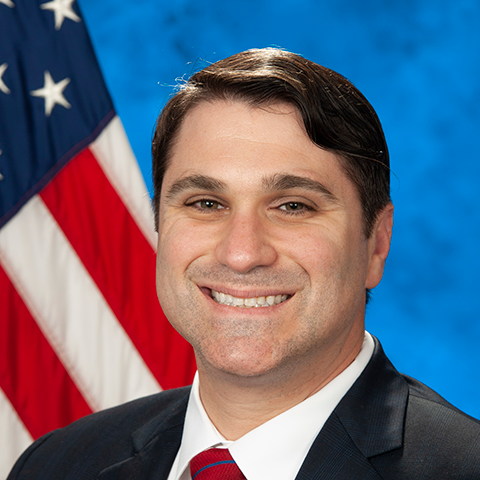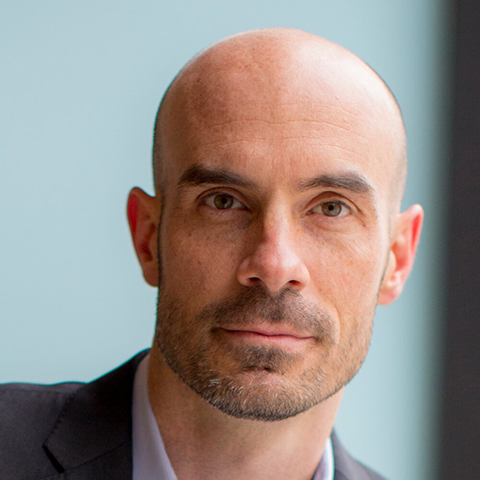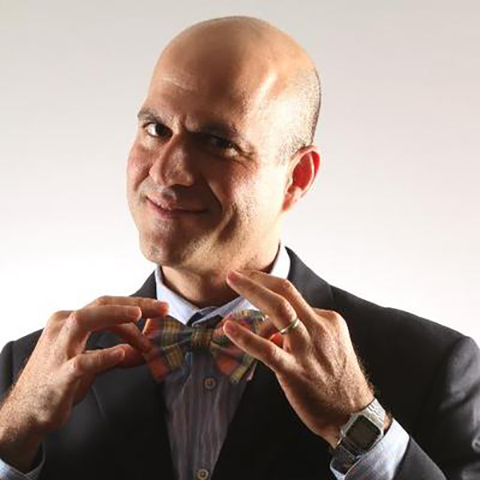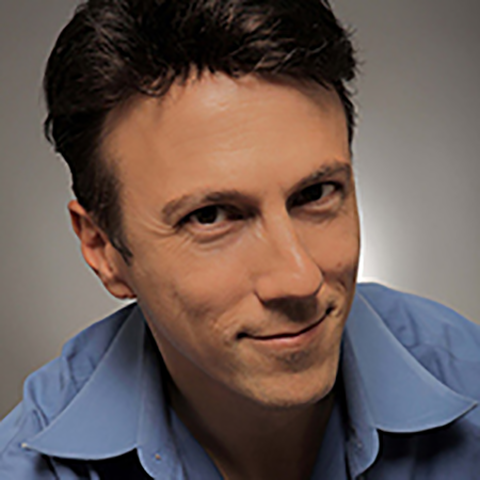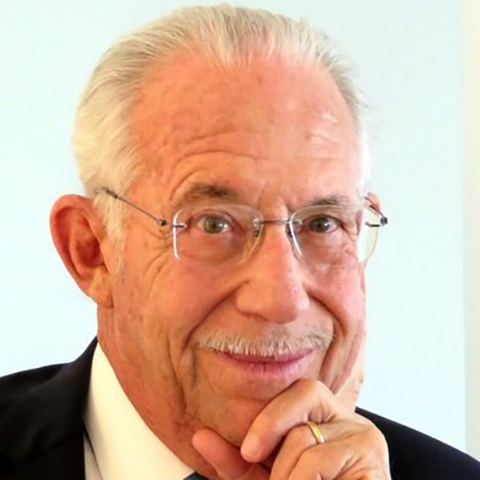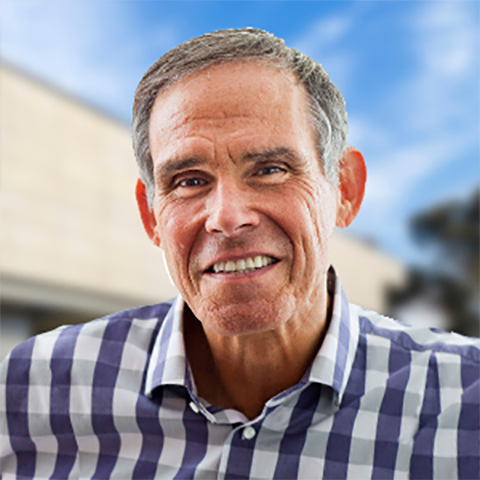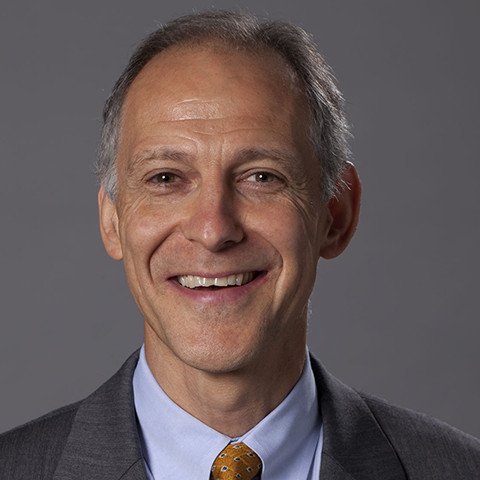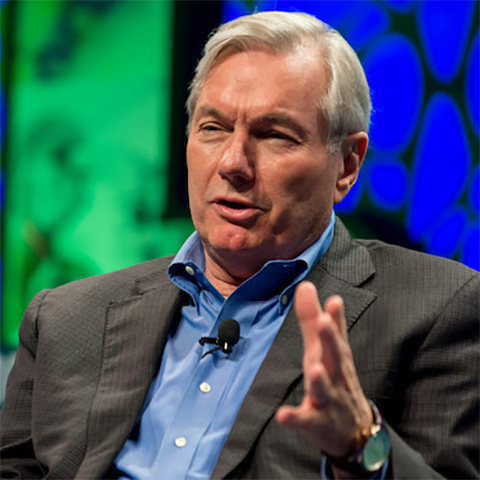THURSDAY, NOVEMBER 20, 2025
How Dr. Sanjeev Arora Helped Improve Care for 200 Million Patients
People around the world are living longer and healthier lives because of an innovative idea that became a global force for change. On this episode of Conversations on Health Care, hosts Mark Masselli and Margaret Flinter welcome back Dr. Sanjeev Arora, founder of Project ECHO, an approach that has already improved care for more than 200 million patients worldwide.
Project ECHO was born from one question Dr. Arora asked himself more than 20 years ago: How do we make sure no patient is left behind because they cannot reach a specialist? What began as a hepatitis C initiative in New Mexico is now used for more than 70 complex conditions across over 200 countries and territories.
In this new interview, Dr. Arora reflects on what inspired him, what surprised him, and what he believes is possible next. He explains how primary care providers became force multipliers for specialty expertise, how Project ECHO expanded through COVID-19, and why community health centers continue to lead the way in democratizing knowledge.
“If we are willing to democratize our expertise and work together as interconnected providers, we can rapidly improve the U.S. health care system,” Dr. Arora said.
He also shares why the ECHO model boosts the resilience and joy of primary care teams, improves outcomes for underserved populations, and has transformed mental health care in India, where one psychiatrist may serve hundreds of thousands of patients.
“I know this work is making a difference in the community and in the world,” he said.
Listen to the full interview to hear Dr. Arora’s reflections on scaling impact, building health care communities, and the hope he carries for the next chapter of Project ECHO.
This episode also marks a meaningful return. Dr. Arora first appeared on Conversations on Health Care in 2011, shortly after Project ECHO was recognized as a disruptive innovation in global health. You can revisit that early conversation, here.
THURSDAY, OCTOBER 2, 2025
How Govt. Shutdown Affects Telemedicine
The federal government is shut down and the ripple effects are being felt. Legislation tied to the budget impasse also means Medicare telehealth flexibilities and the Acute Hospital Care at Home program expired early Wednesday morning.
“Most providers and hospital systems are taking calculated risks to continue care during this time, but long-term continuity depends on action by our telehealth champions in Washington to restore these flexibilities and ensure retroactive reimbursement,” says Kyle Zebley, senior vice president, public policy at the American Telemedicine Association.
Right before the shutdown he talked to hosts Mark Masselli and Margaret Flinter about the situation. “The stakes are enormous. We’re talking about millions of Americans…having access to the telehealth services. It’s a tremendous setback for our community.”
THURSDAY, JULY 17, 2025
Pretend You Have Millions to Fix Health Care: What Would You Do? A Doctor Gives His Answer
If you ran a healthcare foundation worth nearly $1 billion, where would you invest those dollars? That a question Dr. Joseph Betancourt, his colleagues and board members get to tackle every day.
Dr. Betancourt, president of the influential The Commonwealth Fund, is committed to “Affordable, quality health care. For everyone.” Hosts Mark Masselli and Margaret Flinter interviewed him at Aspen Ideas: Health at the Aspen Institute.
Here are some of the Fund’s top concerns right now:
- Private equity: The Commonwealth Fund is examining how private equity engages in healthcare delivery and what impact it’s having on cost, quality and safety. Dr. Betancourt explains that its new strategic plan will focus on commercial drivers and the tension between patients and profits.
- Primary care: There’s a growing crisis, exacerbated by fewer primary care medical students and a culture that doesn’t appreciate their contributions.
- Outcomes: The Fund’s Scorecard on State Health System Performance found the number of children who have received all doses of the seven recommended early childhood vaccines is below 75% in most states.
Dr. Betancourt, the first Latino to lead the Fund, is also proud of health equity as he defines it:
“My lived experience informs a lot of my ideas around how our foundation can go forward…it’s about respect and making sure we’re not leaving anyone behind, that we and I do the best for everyone. Those are the values I bring personally. Those are the values I bring as a clinician. And those are the values that are very well aligned with the Commonwealth Fund,” he says.
THURSDAY, APRIL 17, 2025
“ChatGPT, MD”: Author Says AI-Empowered Patients, Doctors Take Control
The U.S. healthcare system could save up to 500,000 lives and $1.5 trillion a year by embracing the right technology, says Dr. Robert Pearl, a Stanford University professor and a noted healthcare influencer.
Pearl, who co-authored his new book “ChatGPT, MD” with the help of generative AI, says the tech’s strength lies in its access to the entirety of medical knowledge. “We shouldn't think of [generative AI] as just another AI tool. This is as … different from what's come before as the iPhone was from the telephone that was in most people's kitchens attached to the wall.”
For clinicians and patients alike, that access can be transformative. Parents might use it to uncover what’s wrong with their child when traditional medicine is still searching for answers. A doctor might identify rare diagnoses in minutes, work that would have taken days in a library.
Hospitals already collect massive data — about a terabyte per facility annually — but 97% of it is never reviewed, Pearl says. The key is narrowing it to specific diseases or trends.
Pearl tells “Conversations on Health Care” hosts Mark Masselli and Margaret Flinter that Gen AI will gain widespread medical acceptance when studies compare outcomes with and without the technology
“We're going to find that the technology is 10% better than the average clinician … or the average nurse in a chronic disease management program…or, for that matter, potentially even the average physician doing inpatient care when there are five or six different doctors taking care of the same patient and they're not effectively communicating.”
Click now to hear his take on the technology’s other benefits.
THURSDAY, APRIL 10, 2025
Mystery No More: Howard Hughes’ Legacy Advances Science
Eccentric billionaire Howard Hughes founded his eponymous Medical Institute over 70 years ago devoted to “unlocking the fundamentals of biology and building an open, inclusive future for science.”
Some say Howard Hughes Medical Institute is bringing its founder’s vision into the future with its one-of-a-kind Janelia Research Campus in Ashburn, Virginia. On this 281-acre parcel of land, integrated teams of lab scientists and tool-builders pursue a small number of scientific questions with potential for transformative impact. To drive science forward, they share their methods, results, and tools with the scientific community.
Nelson Spruston, Ph.D., the executive director at HHMI’s Janelia research campus, also tells hosts Mark Masselli and Margaret Flinter about AI@HHMI, its new $500 million initiative to embed AI systems throughout every stage of the scientific process.
Spruston says, “Our approach is to identify people who have a very strong track record of making important discoveries in biomedical research and letting them pursue their best ideas without asking for our permission. What we're trying to do at HHMI is to use the deep bench of talent … to come up with ideas for problems [and address] long-standing open questions in the biological sciences.”
THURSDAY, MARCH 13, 2025
Michael J. Fox’s Foundation Makes Parkinson’s Breakthrough
Emmy award-winning actor Michael J. Fox shocked the world when he announced over 25 years ago that he had been diagnosed with Parkinson’s disease. Since then, he’s devoted his talents to eliminating Parkinson’s in our lifetime.
Researchers with The Michael J. Fox Foundation now have impressive progress to report. They’ve developed a biomarker test to measure the protein alpha synuclein that’s helping to diagnose Parkinson’s with more than 90% accuracy, even proving effective at identifying people who may later develop the disease.
“I think this is going to be a game changer for clinical trials and for patient care in the future,” says Samantha Hutten, Ph.D., a neuroscientist and vice president of translational research at the foundation. “But right now it is really a research tool that can be used to inform research and also how we design clinical trials.”
A positive test, for example, may not be able to tell patients which type of alpha synuclein disease they have, whether it’s Parkinson’s, Lewy body dementia or multiple systems atrophy.
“I think there’s huge excitement around it, particularly about the impact on clinical trials,” says Rebecca Miller, Ph.D., an associate professor at Yale University’s School of Medicine who was diagnosed with Parkinson’s in 2013 at age 38. “We’re all looking for a drug that will really be disease-modifying.”
Hutten tells hosts Mark Masselli and Margaret Flinter that the biomarker test is an “all-comers” study, meaning patients can participate if they’ve been diagnosed or have family with Parkinson’s, or have risk factors like loss of sense of smell or REM sleep behavior disorder.
The test comes at a crucial time: the global rate of Parkinson’s has doubled since Fox first revealed his condition.
THURSDAY, FEBRUARY 6, 2025
Guardrails for Health AI: How, Why and When
Artificial intelligence is revolutionizing health care—but how do we ensure it’s safe, effective, and responsible? Dr. Brian Anderson, CEO of the Coalition for Health AI (CHAI), explains to “Conversations on Health Care” how his organization is working to establish clear guidelines for responsible AI in health care.
THURSDAY, JANUARY 9, 2025
Healthcare Providers & ChatGPT Will See You Now: Our Brave New World
The World Health Organization has issued a statement expressing concern about artificial intelligence in health care. In 2023, Mayo Clinic’s then-Chief Information Officer Cris Ross joined us to discuss it. He led innovation projects at Mayo Clinic for over 30 years and told us “perhaps” we should be worried about ChatGPT.
“These technologies are value-neutral but their usage is not necessarily value-neutral. Bad people can use good technology for bad purposes. So I think there’s a very robust debate about whether these technologies should be regulated, whether they can be regulated, and if they are regulated, how we should do that,” Ross told us at the time.
Listen in on this encore presentation as Ross takes hosts Mark Masselli and Margaret Flinter through this brave new world that promises to affect every part of health care.
Originally broadcast June 8, 2023.
FRIDAY, DECEMBER 20, 2024
What Elon Musk & Peter Thiel Invest In to Make Lives Longer
Billionaires who dream of extending human life, including Elon Musk, believe they will have very supportive partners in the incoming Trump administration. They’re excited that President Trump has nominated Jim O’Neill for the number two spot at the U.S. Dept. of Health and Human Services because of his history in the anti-aging movement.
David Gobel, the co-founder and CEO of the Methuselah Fund, says, “Jim O’Neill really understands the value of avoiding the suffering…of diseases that don’t actually have to happen if aging is held back. Robert F. Kennedy, Jr., and other nominees are very much in line with the idea of holding aging back by whatever means.” President Trump has nominated Kennedy to serve as HHS secretary.
But “Conversations on Health Care” recently spoke with S. Jay Olshansky, Ph.D., a professor at the University of Illinois at Chicago, who questioned private and public dollars going to such efforts. “We’ll be lucky if 5% of the age cohort makes it to 100,” he said. Olshansky and his colleagues have presented data that humans are approaching a biologically-based limit to life.
Join hosts Mark Masselli and Margaret Flinter for this look into the world of life extension and how Trump administration officials could push the country to embrace these unconventional practices. In addition, learn more about the first longevity patient protocol from Danielle Ruiz, MSN, APRN, AGNP-C, CEO and Medical Director, Everest Health.
THURSDAY, OCTOBER 17, 2024
How Groundbreaking NIH Research is Expanding to Birth-to-Four-Year-Olds
For nearly the first decade of the National Institutes of Health’s “All of Us” Research Program — aimed at increasing diversity in genetic research — a major component was missing: kids.
“Children are approximately 24% of our population in the U.S. and 100% of our future,” Dr. Sara Van Driest, director of pediatrics for NIH’s All of Us Program, told hosts Mark Masselli and Margaret Flinter. “In order to provide them with the very best care for the future and have them benefit from this resource, we need to include them.”
The journey is personal for Katrina Yamazaki, Ph.D., principal investigator for Community Health Center, Inc., in Connecticut, a partner organization in All of Us. Yamazaki and her husband adopted three boys through the foster care system.
“We don’t know a whole lot about their … biological families’ medical history,” Yamazaki said. “The idea that this program will one day be able to provide some of [that] missing information to me and my husband, in order to become health advocates for our children is really important to me.”
The NIH in August began limited enrollment in the program for children age 4 and under.
“We started with that youngest age group so we can follow them the longest,” Van Driest said.
Community Health Center, Inc., for its part, is partnering with community-based organizations such as the Hartford Public Library to build trust, raise awareness of the project and make a fun atmosphere through activities.
All of Us intends to change what might be seen as a “one-size-fits-all” approach to health care. It aims to encompass 1 million individuals of diverse backgrounds but doesn’t focus on particular diseases or conditions, Van Driest said. The diversity, too, goes beyond culture, touching geography, age and socioeconomic status.
“One of the goals of research is to connect the dots,” she said. Given the scope of the project, “there will be so many dots that we’ll be able to connect,” Van Driest said.
“If we fail to include a group of individuals or an aspect of diversity, we miss out on that uniqueness. That limits us in what we’re able to understand about humanity in general,” she said. “It also limits research and learning about that group of individuals. And it limits downstream how clinicians can care about individuals and give them the very best possible outcomes.”
THURSDAY, AUGUST 22, 2024
NEJM’s First AI Editor: Yes, AI is Here to Stay
Some patients are concerned about how far artificial intelligence (AI) is creeping into the exam room. But AI has been part of health care longer than most realize, according to Dr. Isaac Kohane, a groundbreaking Harvard University professor.
Kohane is the editor-in-chief of the New England Journal of Medicine’s first publication devoted to AI. He tells hosts Mark Masselli and Margaret Flinter that “In the 1980s, automated interpretation of an [echocardiogram] would have been considered AI. Now it’s the ability to look through a patient’s record and come up with a differential diagnosis, a second opinion, a therapeutic plan.”
Kohane shares a success story of a mother whose child had difficulty walking and chewing, suffered from headaches and had seen more than a dozen doctors over many years, with no diagnosis. After one doctor recommended a psychiatric course of action, the mother fed the reports from various past medical visits into a generative AI program, which suggested tethered cord syndrome.
Cases like this can represent AI’s potential, says Kohane. But the nascent technology raises issues of bias. “You can run tests on these AI programs and say, ‘Would you propose that diagnosis more often if this was an African-American or an Indian-American?’ … And you can adjust these programs,” Kohane says. The exciting part is that the adjustment would be easier than undoing even unconscious bias among hundreds of thousands of health care professionals, he explains.
FRIDAY, OCTOBER 21, 2022
All of Your Health Information Is Now a Right Not a Privilege - ONC Head Tells Us More
As of October 6, 2022, all health care organizations in the United States are legally required to give patients unrestricted access to all their health records in a digital format.Micky Tripathi, Ph.D., National Coordinator for Health IT at the U.S. Dept. of Health and Human Services, is excited about this change and its ability to empower patients. Yet the free flow of data also poses security risks. He tells hosts Mark Masselli and Margaret Flinter what protections Americans can take and the incredible opportunities health IT offers us during this time of medical challenges.THURSDAY, JULY 14, 2022
How VA Innovation Affects the Entire Health Care System
The U.S. Dept. of Veterans Affairs operates the nation’s largest integrated health care system. But how much do you know about how well VA Medical Centers and clinics identify innovative therapies, practices and policies and then diffuse them across a large footprint? Ryan Vega, MD, MSHA, leads the Innovation Ecosystem within the Veterans Health Administration. This initiative focuses on being the catalyst for enabling the discovery and spread of mission-driven health care innovation to advance care delivery and service.Dr. Vega highlights point-of-care manufacturing and its 3D Printing Network that were essential during the early days of COVID and the VA’s history of deploying the first cardiac pacemaker.Conversations on Health Care hosts Mark Masselli and Margaret Flinter talk to Dr. Vega about these breakthroughs, how they help the entire health care sector and where the VA is partnering with Federally Qualified Health Centers.THURSDAY, JUNE 9, 2022
How Do We Make Healthy Buildings the Next Public Health Revolution?
Joseph Allen is the director of the Healthy Buildings Program at Harvard University’s T.H. Chan School of Public Health. As the co-author of “Healthy Buildings: How Indoor Spaces Drive Performance and Productivity,” his views are closely followed as we try to move quicker than COVID can spread. “Conversations on Health Care” co-hosts Mark Masselli and Margaret Flinter talk with Allen about new efforts to elevate the quality of indoor spaces in an overall health strategy.MONDAY, SEPTEMBER 21, 2020
Can Facebook’s Two Billion Users Slow the Pandemic? Dr. Farzad Mostashari on the COVID-19 Symptom Data Challenge
This week, hosts Mark Masselli and Margaret Flinter speak with Dr. Farzad Mostashari, Founder and CEO of Aledade, former National Coordinator for Health IT, and Chair of the COVID-19 Symptom Data Challenge, a partnership with Facebook Data for Good, Carnegie Melon, Duke, University of Maryland, Resolve to Save Lives and organized by Catalyst @Health 2.0. The challenge is encouraging developers to create tools to mine data submitted by tens of millions of Facebook users, tracking real time COVID-19 symptoms to identify potential pandemic hotspots, for better epidemiological forecasting.
MONDAY, AUGUST 24, 2020
Pandemic XPrize Competition: Dr. Daniel Kraft on Quest to Leverage Tech and AI For Solutions to Address COVID-19
This week, hosts Mark Masselli and Margaret Flinter speak with Dr. Daniel Kraft, physician-scientist, inventor, entrepreneur and Chair of the XPrize Pandemic Alliance Task Force, which is holding competitions to develop better tools for addressing COVID-19. Dr. Kraft, who is also founder and Executive Director of Exponential Medicine, looks at emerging developments that will lead to better rapid tests, masks as well as tech and AI-enabled interventions that will offer earlier diagnosis of infection, and better treatment and management of diseases like coronavirus in the future.
MONDAY, AUGUST 17, 2020
Should I Send My Kids Back To School? Renowned Scientist Dr. William Haseltine Has Advice for Families
This week, hosts Mark Masselli and Margaret Flinter speak with Dr. William Haseltine, President of ACCESS Health International, a global health think tank. He is also a renowned scientist, entrepreneur, philanthropist and founder of Harvard Medical School’s HIV/AIDS and cancer research centers. He discusses his two new books: A Family Guide to COVID: Questions and Answers for Parents, Grandparents and Children, and A COVID Back To School Guide which are continually-updating ‘living e-books’ offering answers to the many questions families have about how to navigate their way through the pandemic.
MONDAY, JULY 27, 2020
Dr. Eric Topol: What Lies Between Now and COVID-19 Vaccine
This week, hosts Mark Masselli and Margaret Flinter speak with Dr. Eric Topol, Founder and Director of the Scripps Translational Institute, and author of “The Creative Destruction of Medicine”. Dr. Topol is a renowned cardiologist and health data champion, and shares a harsh assessment of federal handling of the COVID-19 Pandemic in the US. He’s heartened by the many collaborations yielding significant scientific discovery around rapid testing technology and vaccines. He’s concerned the anti-science movement will undermine deployment of an effective vaccination program, once one makes it to the public.
MONDAY, JULY 20, 2020
Pandemic: Dr. Zeke Emanuel on the Timeline for America Returning to ‘Normal’
This week, hosts Mark Masselli and Margaret Flinter speak with Dr. Zeke Emanuel, Chair of the Department of Medical Ethics at the University of Pennsylvania. A former advisor to the Obama Administration, he predicts the pandemic won’t be fully brought under control until late next year, when an approved vaccine can be successfully deployed across hundreds of millions of Americans. He discusses his new book, “Which Country Has the Best Healthcare” addressing the failure of America’s leadership to adequately address the pandemic.
MONDAY, JUNE 15, 2020
COVID 19: We’re in the Second Inning - According to Noted Epidemiologist Dr. Michael Osterholm
This week, hosts Mark Masselli and Margaret Flinter speak with Dr. Michael Osterholm, world-renowned epidemiologist, pandemic expert and Director of the Center for Infectious Disease, Research and Policy at the University of Minnesota. The author of The Deadliest Enemy: Our War with Killer Germs, Dr Osterholm has warned for years of the likelihood of a pandemic such as COVID-19.He extols the need for ongoing measures to protect the public health and front line health care workers through mask use, social distancing and tests, and the herculean scientific efforts to produce treatments and a vaccine.

